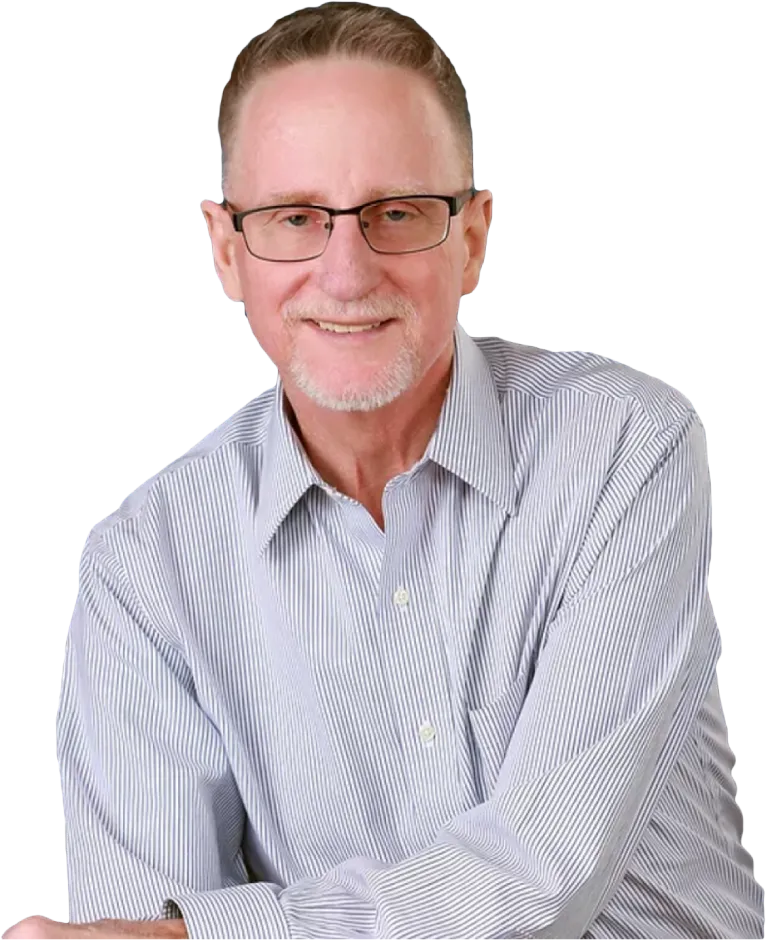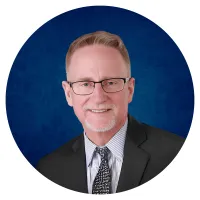SCOTT MASSEY
Inspirational Speaker
& Resilience Coach

FROM HIGH SCHOOL DROPOUT TO PHD
I started drinking when I was 12 and became a high school dropout by the time I was 15. In my twenties, I was waking up without knowing where I was or how I got there. My life didn't have meaning or purpose.
After thirty years of alcohol abuse, I decided to check into rehab and made an action plan for my life. It's been a difficult journey, but I'm almost 20 years sober now.
was a high school dropout, addicted to alcohol, and lacked hope. Now, I have a PhD, teach at the university level, and successfully run two businesses. I know adversity. I know struggle. And I know success.
Now I want to help you unleash the power to transform your life.
YOU HAVE THE POWER TO CHANGE THE TRAJECTORY OF YOUR LIFE
I believe each person has the ability to transform their life. Regardless of your past, you can make your future successful. Whether you’re struggling with addiction, broken relationships, or financial issues, you can enhance your life.
TESTIMONIALS
Dr. Scott Massey’s ability to talk with others about his past and how he got through it is amazing. Two members of my family struggle with alcoholism, and it’s difficult to watch, so his story resonated with me. He has and will continue to help others with their personal struggles.
—Katlyn B.
I have a lot of respect for Scott as a person. I’m twenty-two and living the young, “fun” stage of life, but his talk helped me realize the decisions I need to make now. I enjoyed his presentation; he spoke fearlessly.
—Danielle C.
Scott is incredibly inspiring! He took control of his life even when he didn’t have others supporting him. I enjoyed hearing his story. He did a great job making it relatable to everyone and challenged us to reflect on our own lives.
—Ellie W.
I felt the most impact when Dr. Massey talked about what makes him a better person. I personally deal with anxiety and think about things I can’t do instead of focusing on what I can do. After hearing Dr. Massey share his motivations, though, I’m inspired to set my mind on the things I can do!
—Danielle C.
Listening to Scott gave me hope for my future. He posed challenging questions that truly got me thinking. I think others can benefit from reflecting on his story and his questions, too.
—Brittany S.
Scott has a powerful story and I hope he continues to share it. He realized he wasn’t the person he wanted to be, so he made decisions that turned his life around. He created a plan of action and changed his life—we can do the same.
—Isaac D.
BOOK AN APPOINTMENT
Scott Massey is available for coaching or speaking at your next event!
Take the first step and book an appointment with Scott today!
RECENT POSTS

Identifying STARS: A Blueprint for PANCE Success
Dr. Westphall felt a wave of anxiety as he scanned his students’ recent PANCE scores. Of the 30 students in his class, six had failed the exam on their first try. For a program known for high first-time pass rates, this was more than a setback—it was a crisis.
The question wasn’t just what went wrong, but how to prevent it from happening again. The solution? A proactive system focused on identifying and supporting Students At Risk (STARs).
Early Detection = Better Outcomes
Success starts with early identification. By catching at-risk students early, programs have time to offer targeted support and remediation. It’s not about adding more work to already-burdened faculty—it’s about prioritizing student outcomes. Regular check-ins and a structured remediation plan ensure students stay on track and address weak areas before it’s too late.
Why It Matters
Your students’ success is a reflection of your program. First-time PANCE pass rates don’t just affect your statistics—they influence reputation and accreditation. According to ARC-PA guidelines, any cohort with a pass rate below 85% must submit a comprehensive performance analysis, looking at factors such as admissions data, course performance, remediation results, and student feedback.
STAR Risk Levels and Assessment Tools
Using data like GPA, End of Rotation exams, and PACKRAT scores, students can be placed into four risk levels:

Faculty advisors tailor remediation contracts for high- and critical-risk students, focusing on study plans, skill-building, and one-on-one mentoring.
Culture Shift: Support Over Stigma
One of the biggest challenges? Changing the culture. Students may fear being labeled “at risk,” but reframing support as mentorship rather than punishment changes the game. Confidentiality and inclusivity are key—when everyone feels like success is a shared goal, students thrive.
The Results Are In
Thanks to this proactive approach, all six students who initially failed the PANCE passed on their second attempt. More importantly, the strategy helped future cohorts take ownership of their learning and embrace the support systems in place.
By reaching for the STARS, this program didn’t just recover—it grew stronger.
SCOTT MASSEY

Inspirational Speaker
& Resilience Coach

FROM HIGH SCHOOL DROPOUT TO PHD
I started drinking when I was 12 and became a high school dropout by the time I was 15. In my twenties, I was waking up without knowing where I was or how I got there. My life didn't have meaning or purpose.
After thirty years of alcohol abuse, I decided to check into rehab and made an action plan for my life. It's been a difficult journey, but I'm almost 20 years sober now.
was a high school dropout, addicted to alcohol, and lacked hope. Now, I have a PhD, teach at the university level, and successfully run two businesses. I know adversity. I know struggle. And I know success.
Now I want to help you unleash the power to transform your life.

YOU HAVE THE POWER TO CHANGE THE TRAJECTORY OF YOUR LIFE
I believe each person has the ability to transform their life. Regardless of your past, you can make your future successful. Whether you’re struggling with addiction, broken relationships, or financial issues, you can enhance your life.
TESTIMONIALS
Dr. Scott Massey’s ability to talk with others about his past and how he got through it is amazing. Two members of my family struggle with alcoholism, and it’s difficult to watch, so his story resonated with me. He has and will continue to help others with their personal struggles.
—Katlyn B.
I have a lot of respect for Scott as a person. I’m twenty-two and living the young, “fun” stage of life, but his talk helped me realize the decisions I need to make now. I enjoyed his presentation; he spoke fearlessly.
—Danielle C.
Scott is incredibly inspiring! He took control of his life even when he didn’t have others supporting him. I enjoyed hearing his story. He did a great job making it relatable to everyone and challenged us to reflect on our own lives.
—Ellie W.
I felt the most impact when Dr. Massey talked about what makes him a better person. I personally deal with anxiety and think about things I can’t do instead of focusing on what I can do. After hearing Dr. Massey share his motivations, though, I’m inspired to set my mind on the things I can do!
—Danielle C.
Listening to Scott gave me hope for my future. He posed challenging questions that truly got me thinking. I think others can benefit from reflecting on his story and his questions, too.
—Brittany S.
Scott has a powerful story and I hope he continues to share it. He realized he wasn’t the person he wanted to be, so he made decisions that turned his life around. He created a plan of action and changed his life—we can do the same.
—Isaac D.
BOOK AN APPOINTMENT
Scott Massey is available for coaching or speaking at your next event!
Take the first step and book an appointment with Scott today!
RECENT POSTS

Identifying STARS: A Blueprint for PANCE Success
Dr. Westphall felt a wave of anxiety as he scanned his students’ recent PANCE scores. Of the 30 students in his class, six had failed the exam on their first try. For a program known for high first-time pass rates, this was more than a setback—it was a crisis.
The question wasn’t just what went wrong, but how to prevent it from happening again. The solution? A proactive system focused on identifying and supporting Students At Risk (STARs).
Early Detection = Better Outcomes
Success starts with early identification. By catching at-risk students early, programs have time to offer targeted support and remediation. It’s not about adding more work to already-burdened faculty—it’s about prioritizing student outcomes. Regular check-ins and a structured remediation plan ensure students stay on track and address weak areas before it’s too late.
Why It Matters
Your students’ success is a reflection of your program. First-time PANCE pass rates don’t just affect your statistics—they influence reputation and accreditation. According to ARC-PA guidelines, any cohort with a pass rate below 85% must submit a comprehensive performance analysis, looking at factors such as admissions data, course performance, remediation results, and student feedback.
STAR Risk Levels and Assessment Tools
Using data like GPA, End of Rotation exams, and PACKRAT scores, students can be placed into four risk levels:

Faculty advisors tailor remediation contracts for high- and critical-risk students, focusing on study plans, skill-building, and one-on-one mentoring.
Culture Shift: Support Over Stigma
One of the biggest challenges? Changing the culture. Students may fear being labeled “at risk,” but reframing support as mentorship rather than punishment changes the game. Confidentiality and inclusivity are key—when everyone feels like success is a shared goal, students thrive.
The Results Are In
Thanks to this proactive approach, all six students who initially failed the PANCE passed on their second attempt. More importantly, the strategy helped future cohorts take ownership of their learning and embrace the support systems in place.
By reaching for the STARS, this program didn’t just recover—it grew stronger.

